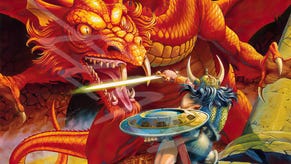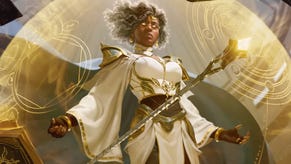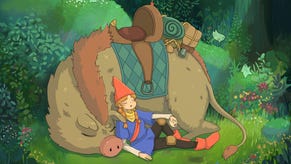Critical Role’s tragic turn is just what Campaign 3 needed
Another one bites the dust.
It’s been a rough couple of weeks to be a Critter. Critical Role’s latest campaign is starting to really pick up steam, with a host of interconnected story threads starting to tie together - or unravel completely - as we deal with PC regrets, learn more about their misremembered or entirely forgotten histories, and see the central storyline collide hard with a villain from various party members’ pasts.
Spoiler alert: This article discusses the recent developments in Critical Role Campaign 3: Bells Hells and includes spoilers from Campaign 2: The Mighty Nein. Read at your peril!
An especially rough part came in episodes 33 and 34, in which a brutal face-off with Paragon’s Call leader Otahan Thule saw three party members momentarily die, after which the healers among the group only had the resources (spell slots, and spell components) to resurrect two of them. Laudna, played by Marisha Ray, was left dead - and remains so for now. May she rest in peace.
The finality of Laudna’s death is up for debate, given the various resurrection magics available in the world of Dungeons & Dragons. This isn’t quite the same as the loss of Mollymauk in Campaign 2, when the players were a mere level five and lacked the same kind of high-level connections that the Bells Hells enjoy.
This time around, the characters have relationships with powerful benefactors (Lord Eshteross, Jiana Hexum) as well as arch-druid Keyleth: Voice of the Tempest, leader of the Ashari and Marisha Ray’s original character™ from Campaign 1: Vox Machina. It’s feasible that we’ll see these connections play a big role in the episodes ahead, and that there’ll be some way to get Laudna back at the table again. She already came back to life once, after all, and the party has bought some time by casting Gentle Repose on Laudna’s body to save it from further decay.
The gut punch from these recent episodes is likely to linger, whatever the outcome down the line.
I, like many other fans, am hopeful of this, given how vivid Ray’s eccentric, undead warlock-sorcerer-witch has proved, and how juicy her connection to Campaign 1 villain Delilah could be in the long run. Not to mention her intense friendship with Laura Bailey’s sorcerer Imogen, which some expected would evolve into something romantic over time.
However, the gut punch from these recent episodes is likely to linger, whatever the outcome down the line. It was a haunting few hours as we saw character after character go down and the party came uncomfortably close to losing three entire characters, let alone one, which would have been a different matter entirely.

Either way, seeing Critical Role skirt so closely to player death, and even cross that line, will do much to shape the direction of this latest campaign going forward. After Mollymauk’s death in Campaign 2, we saw the remaining players mourn, yes, but also entirely rework their strategy as an adventuring party. They became wary of running into combat head-on, and spent more time planning, thinking, weighing up different plans of action. The stakes had risen: something that everyone at the table was aware of. When Taliesen Jaffe took on a new character role, he chose a healing-focused cleric, which seems to have been at least partially to improve the survivability of the group.
Seeing Critical Role skirt so closely to player death, and even cross that line, will do much to shape the direction of Campaign 3 going forward.
The tragic turn of Campaign 3 has the potential to do the same, forcing characters to strategise in a more focused manner, and ultimately make for more nail-biting moments – full of the calculated risk and sense of danger that makes experienced D&D actual play so thrilling to watch. It motivates the players to think harder, to make better choices, and to use the full scope of mechanics at their disposal.
This is doubly the case because of Laudna’s purpose as a vessel for necromancer Delilah, meaning that bringing a beloved PC back to life could bring even more doom upon the party members and the world they are trying to save.
This also makes us viewers a better audience, pulling us in and engaging our attention as the players walk a fine line between victory and loss. It’s hard to pull away when lives are on the line and the precedent for character death has been set.
Ultimately, this one brutal combat, as emotional as it may have been to watch, will only cement the legendary status of this actual-play series – as a place where, through a long-form campaign running hundreds of hours, we see players and PCs alike grow, change, and process their actions at the table alongside us. Where we are as invested as the people at the table, and feel their victories - and losses - as vividly as if they were our own.
I was devastated to see Marisha Ray leave the table, but know I will only be paying more attention from here on out.










